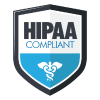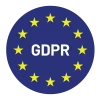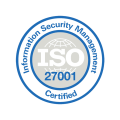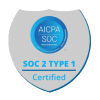
Things You Can Do To Reduce Your Cancer Risk: Part 1
In my previous blogs I described all the wonderful foods you can consume to support your anti-cancer diet. Here I will highlight some additional anti-cancer tips that should guide you whether you are a cancer survivor or looking for cancer-prevention and wellness strategies.
A Shopper’s Guide to the Dirty Dozen
I mentioned the importance of eating clean food in one of my previous blogs – according to the Environmental Working Group guidelines, below is the ‘dirty dozen’ – a list of produce that tends to ‘soak up’ more potentially carcinogenic pesticides. So it’s important to note that when purchasing the items below, only buy organic. Studies have shown that organic produce provides significantly greater levels of vitamins and minerals and antioxidant phytochemicals (anthocyanins, flavonoids, and carotenoids).
- Strawberries
- Spinach
- Kale
- Nectarines
- Apples
- Grapes
- Peaches
- Cherries
- Pears
- Tomatoes
- Celery
- Potatoes
Here’s a list of produce that are cleaner to eat even if grown conventionally. Of course, buying organic and locally sourced is best in a perfect world. If you are on a budget, you can get away with buying non-organic produce on the “clean” 15 items listed below and save your dollars for the essential items listed above.
- Avocados
- Sweet corn
- Pineapple
- Onions
- Papaya
- Sweet peas (frozen)
- Eggplant
- Asparagus
- Cauliflower
- Cantaloupe
- Broccoli
- Mushrooms
- Cabbage
- Honeydew melon
- Kiwi
Eating Less and Intermittent Fasting
Evidence shows that cutting calories can reduce cancer risk. Since over-eating leads to obesity thereby increasing the risk factor for the incidence of cancer and other diseases, lowering calorie intake is the cheapest and simplest way to prevent and manage cancer. In vitro studies have clearly established that both insulin and IGF-I (that are raised upon eating and with animal proteins), act as growth factors that promote cell proliferation and inhibit cancer cell death. If you are eating a calorie-restricted diet, make sure you’re getting all the daily nutrients you need – a diet packed with vegetables, fruits, nuts and seeds will keep you nutritionally loaded.
I’ve written in my previous blog about the benefits of intermittent fasting. Ideally, intermittent fasting is a period of at least 15 hours without eating. So, if you finish dinner by 7pm, your first meal of the next day would be after 10am at the earliest. If this sounds too daunting or will have you staring at the clock with hunger pangs, you can try a 12-hour fast (7pm to 7am) and gradually work up from there. I normally do a 15 hour fast most days and it’s an easy protocol to maintain since I don’t have to do anything. Studies conducted on nutritional restriction have shown that it is a promising protocol to facilitate DNA repair and enhance the efficacy of anticancer therapies while protecting normal cells.
Stay Away from Sugar
Sugar has been linked to cancer in multiple studies. Cancer cells thrive on sugar more than normal cells so eating high carb, sugary foods and beverages will amp up those cancer cells. It’s best to stick to natural forms of sugar found in vegetables and fruits – if your diet is packed with these nutrient-dense foods, your body will gradually stop craving the artificial sugar ‘fix’.
Avoid Xenoestrogens and Limit Plastics
Xenoestrogens are a sub-category of the endocrine disruptor group that specifically have estrogen-like effects. Studies have shown the association of xenoestrogen exposure with a variety of cancers. Xenoestrogens include chemicals like polycyclic aromatic hydrocarbons (PAH), pesticides, mycotoxins, bisphenol A (BPA found in many plastics) among others. These hormone disruptors have also been found in drinking water, cosmetic products and cigarettes.
Here are several ways to limit xenoestrogen exposure:
- Make sure your drinking water is clean. Invest in an inexpensive water filter pitcher. The Brita Soho with Longlast Filter was a top pick according to an independent testing lab. It did a great job of filtering out chlorine, lead, mercury, cadmium and microplastics. It’s also an inexpensive way to get clean water without having to install a water filtrating system for the house.
- Avoid cosmetics and beauty products that contain phthalates and other chemical substances. The Environmental Working Group has a useful database on skin and cosmetic products. I will write more about this in a future blog.
- Bisphenol A (BPA), one type of xenoestrogen, is found in water bottles, linings of cans, reusable food containers and even on clothing. BPA is everywhere and is now detected in most of us in a urine test. It’s best to avoid plastics in general regardless of type as it’s difficult to know where BPA may be hiding. Stick to glass, stainless steel and natural materials (like cotton and silk). Stay away from plastic containers, canned foods/drinks and invest in some Pyrex containers and stainless steel drink bottles. Also, don’t put anything on your skin that you wouldn’t want to eat, as skin is the largest organ in your body and you will absorb it. Stick to organic cotton and natural materials to minimize your skin’s exposure to plastics and chemicals.
Keep Your Indoors Clean
- If you are still using artificial air fresheners, deodorizers, bleach, and moth repellents, toss these out and switch to natural agents. There are so many products out there now that are kind to your health and to the environment (Dr. Bronner’s and Fit Organic are two to consider), and with the market exploding, you may be able to find some generic brands. Make sure to read the label before you buy. For air freshness, I like to use an essential oil diffuser in the bathroom and where my dogs hang out – I switch it up with oils like lavender, lemon, spearmint, frankincense and chamomile depending on my mood. It dissipates through the house and smells fabulous!
- Get some air-purifying plants – in a study conducted by NASA in the late 80s, it was shown that certain plants can absorb harmful toxins from the air. Although not as powerful as the air purifiers you can buy, these plants are certainly aesthetically pleasing to the eye and create a calming ambiance to your room. Here are three to consider:
- Spider plants are very easy to grow so even for a brown thumb like me, it’s a winner. It has been shown that spider plants are one of the best for removing toxins like formaldehyde and xylene.
- Peace lilies require a little bit more love and care than the spider plant but in the NASA study, they found that peace lilies were one of the top three plants for removing toxins like ammonia, formaldehyde, benzene and more. Keep in mind that this plant is toxic to animals and children so keep it away from reach.
- Bamboo palms can be invasive when planted outside as it will take over your yard (and your neighbor’s) – unless you are looking for major erosion control or starting a bamboo farm, I wouldn’t want to recommend this. However, indoors in a pot, it is great at filtering our chemicals like formaldehyde, benzene and trichloroethylene. Since these plants can grow to 4-12 feet tall, it can filter a lot of junk from the air.
Don’t Get Sunburn!
Getting some sunlight during the day is good and helps keep your circadian rhythm in balance and your Vitamin D levels up, but excessive exposure leading to a sunburn will promote cancer, especially for fair-skinned types. And just because it’s cloudy or you’re in the shade, doesn’t mean you can’t get sunburned. In fact, you are at greater risk to get sunburned on a cloudy day than on a sunny day because you are not as aware of being exposed to the sun. So if you’re heading to the beach for the week, don’t forget your hat, sunscreen and clothing cover-ups. Here are some friendly sunscreens to try:







